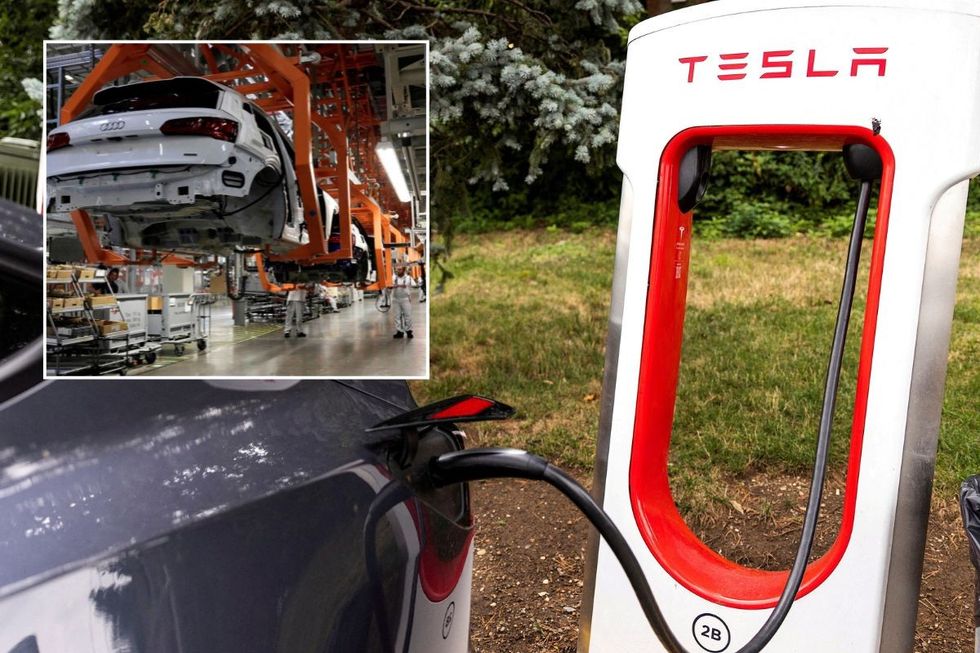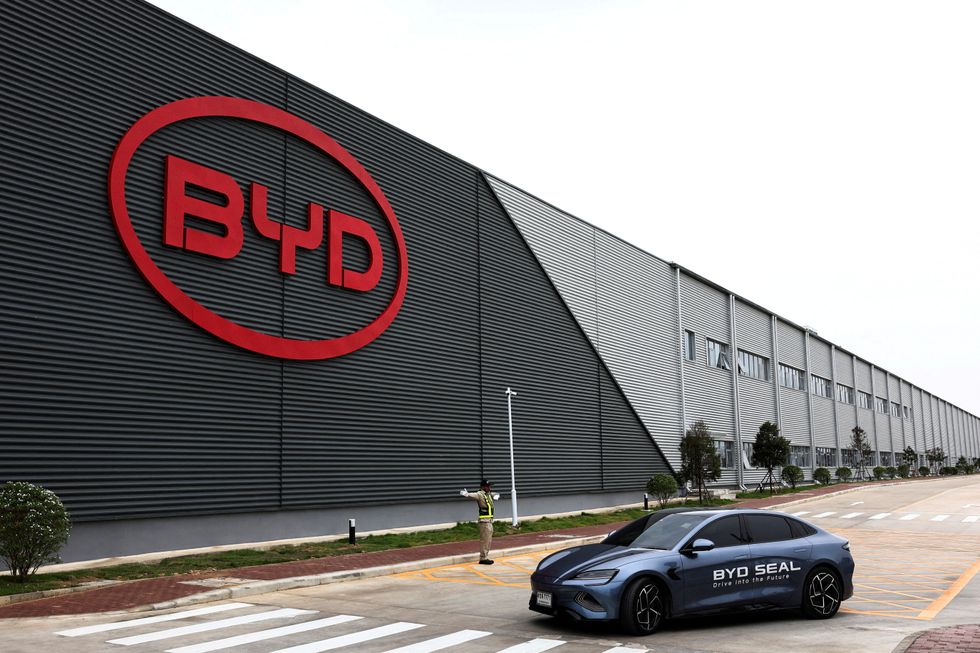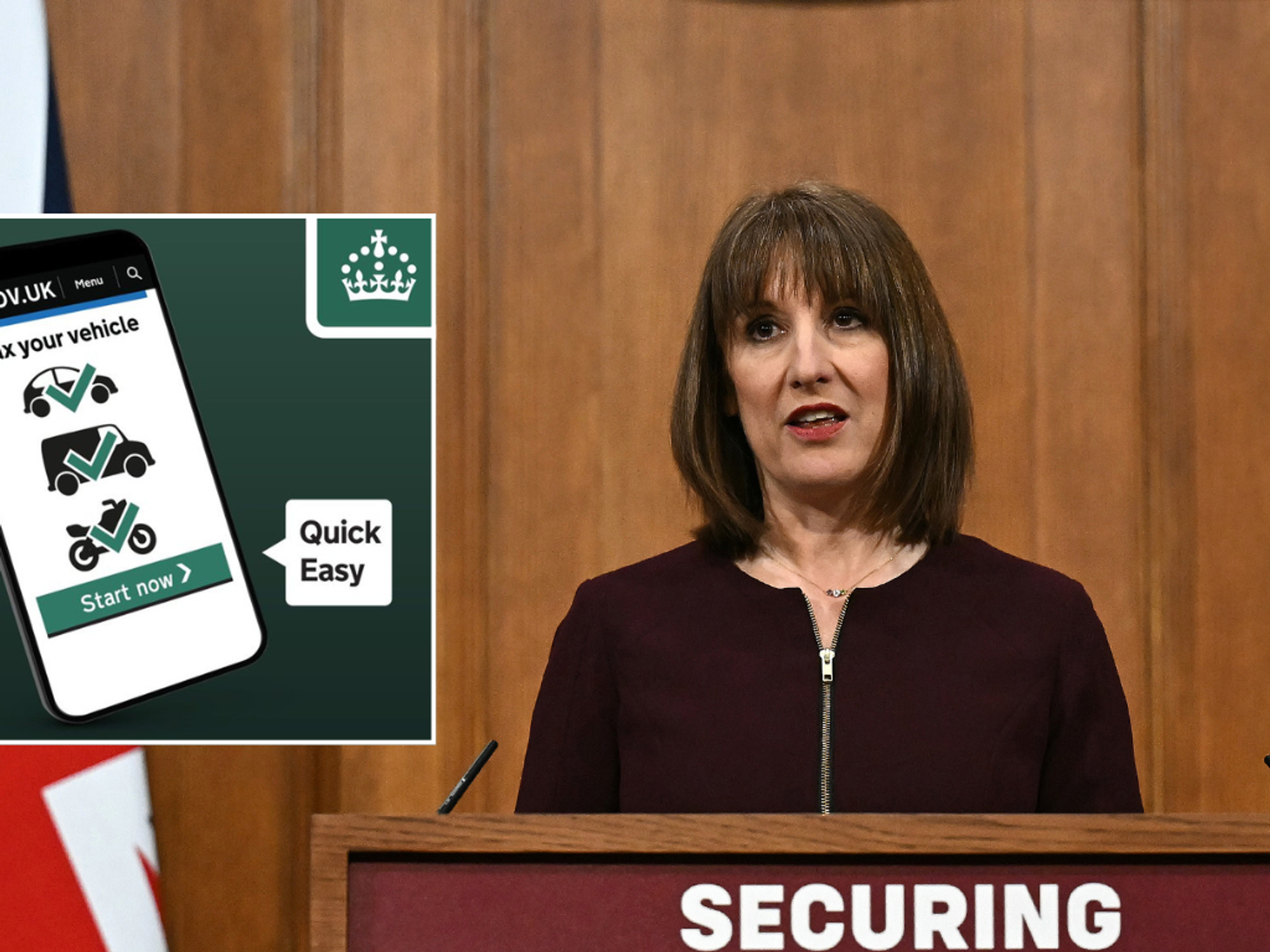Electric car sales dominate Europe with driver interest in petrol and diesel vehicles dying off
WATCH: Rachel Reeves says she will continue to support the purchasing of electric vehicles
'Carmakers need clarity to push forward and deliver the products that customers clearly want'
Don't Miss
Most Read
Trending on GB News
Drivers are switching to electric vehicles en masse, with the market share of petrol and diesel vehicles across Europe dwindling as more affordable options become available.
The latest data from the European Automobile Manufacturers Association (ACEA) reports that new car registrations across Europe have declined by three per cent year-to-year.
Despite this, battery electric vehicles now make up 15.2 per cent of the EU's market share, an impressive jump compared to the 11.5 per cent mark in the comparable period of January-February 2024.
At the same time, the combined market share of petrol and diesel cars fell from 48.5 per cent last year to just 38.8 per cent this year, showing a clear shift in consumer interest.
Do you have a story you'd like to share? Get in touch by emailingmotoring@gbnews.uk

Electric vehicles now make up more than 15 per cent of Europe's new car market share
REUTERS
Hybrid vehicles make up 35.2 per cent of all new car registrations in the January-February period, with plug-in hybrids contributing 7.4 per cent.
Across the first two months of the year, new EV sales grew by 28.4 per cent to more than 255,000 models, with significant gains in Germany (41 per cent), Belgium (38 per cent) and the Netherlands (25 per cent).
Europe has also seen a boost for a range of manufacturers, as the dominance of Tesla wanes amid criticism of Tesla founder and CEO Elon Musk and the so-called Tesla Takedown protests.
Data from the ACEA found that Tesla has sold 42.6 per cent fewer cars in Europe so far this year compared to last year, in a significant blow to the electric vehicle manufacturer.
Tesla retained a market share of just 1.8 per cent and 10.3 per cent of the EV market in February, a significant drop compared to last year when the Musk-led brand had a total share of 2.8 per cent and accounted for more than one-fifth of new EV registrations.
Quentin Willson, founder of FairCharge, gave a damning verdict of the latest data for Elon Musk, saying: "Tesla's wounds are entirely self-inflicted.
"Against a backdrop of falling vehicle sales of all types in the EU, EVs are up 26.1 per cent compared to last February. European aspirations for electric cars seem undiminished - as long as they're not Tesla."
It comes as Tesla's main competitor, Chinese manufacturer BYD, announces plans to double overseas sales to 800,000 this year, backed by a "substantial rise" in its market share across the UK.
Reuters reported that BYD sees "great opportunities" in Latin America and Southeast Asian Countries, having sold 417,204 units globally last year.
Dan Caesar, CEO of EVUK, said it was "great to see" such a boost in electric vehicle sales across Europe, with research from the Cost of Driving Electric Report noting that switching to an EV saves 80 per cent of drivers money.
He added: "Now, more than ever, we need clear, consistent, messaging - no more consumer confusion - and a collaborative effort to truly drive demand of EVs."
Chris Heron, Secretary General of E-Mobility Europe, echoed the praise from Caesar, noting that national and international legislation had helped the rising sales totals of electric vehicles.
LATEST DEVELOPMENTS:
- Sadiq Khan bans electric scooters and e-bikes from London transport network after fires and 'great concern'
- Millions of British drivers urged to take 'five minutes' to sort DVLA car tax issue or face huge fines
- Petrol and diesel car ban deadline remains uncertain as Britons demand Labour 'addresses concerns'

BYD aims to double its total number of international sales in 2025
REUTERSThe expert said: "We are seeing the early impacts from manufacturer plans to meet the EU’s scheduled CO2 limits, embedding this into production lines.
"It's critical that European governments now help boost this early sales momentum across 2025, even with this month’s concession to weaken those targets. The carmakers need clarity to push forward and deliver the products that customers clearly want."
A Government spokesperson told GB News: "We recognise the global challenges car manufacturers face and have listened to their concerns by consulting on reinstating the 2030 phase out date of new petrol and diesel car sales whilst also protecting jobs - a decision supported by a majority of manufacturers who have been working towards this date, and are on track to meet their ZEV mandate targets.
"One in four of all cars sold in February was electric, and last year saw a record 382,000 EVs sold – the highest in Europe. There are also more than 75,000 public chargepoints now available in the UK, with a new one installed every 29 minutes.
"We're investing over £2.3billion to support industry and consumers make the switch, tapping into a multibillion-pound industry that will create high-paid jobs for decades to come, make the UK a clean energy superpower and help deliver our Plan for Change."








